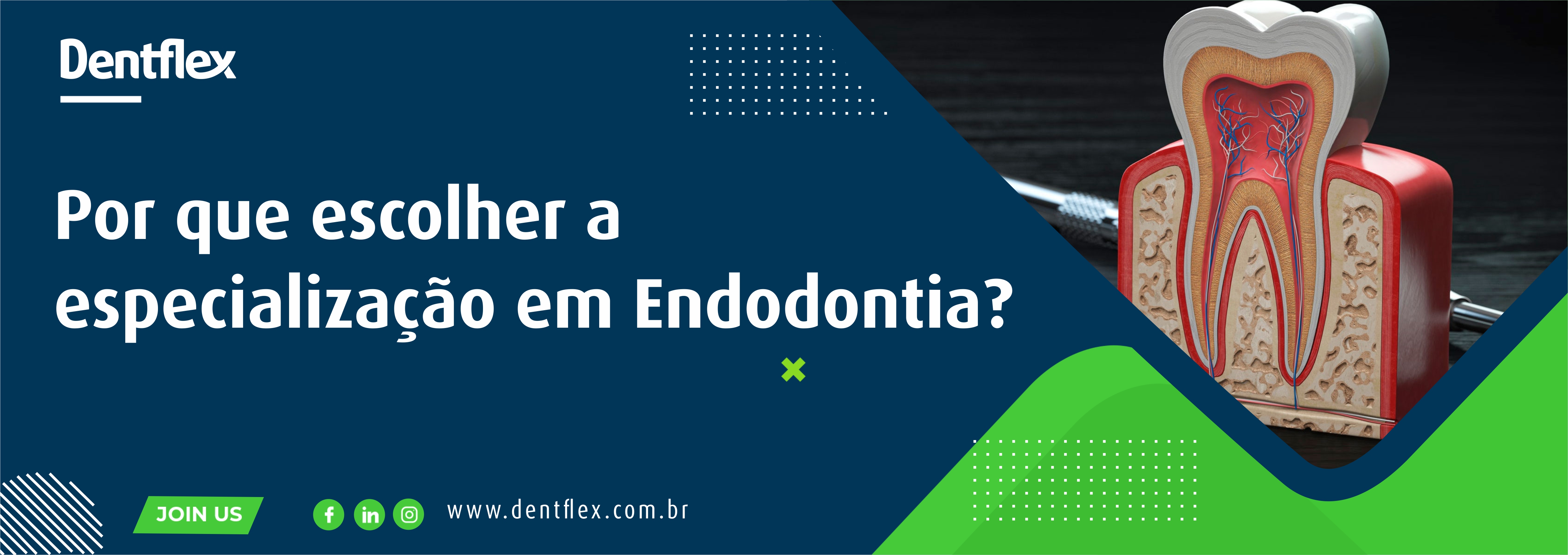Why choose a specialization in Endodontics?

When we graduate in dentistry, we have many doubts about the specialization we should choose. All specialties have their importance, but endodontics is the specialty that aims to keep the teeth in the mouth healthy or keep the teeth healthy for a future prosthetic rehabilitation. Furthermore, it is the specialization that enables the treatment and control of dental pulp infections.
The actual definition of endodontics can be described as the specialty that works with the prevention and treatment of diseases that occur in the dental pulp and periapex and studies the morphology, physiology and pathology of the dental pulp and periradicular tissues.
Therefore, endodontics is the basis for esthetics, so when endodontics is performed in the best possible techniques, the tooth can have a high survival rate.
What does an Endodontist do?
Specialization in endodontics has undergone great evolution. The subjects and what you learned in college did not undergo major changes in terms of treatment philosophy, but the way of doing the procedures underwent major changes. In this way, the evolution in the way of carrying out procedures makes professionals seek professional training and technical-scientific improvement.
Toothaches can often affect people's quality of life, that is, they affect sleep and, in addition, they end up not being able to carry out their normal daily activities. As these dental pains are of pulp origin, those who will help to solve this type of problem in a complete way are the endodontists or professionals who are qualified to exercise this specialty.
Endodontists are also qualified to work with procedures to treat deep caries with the preservation of pulp vitality, care in situations of dental trauma and in regenerative therapies of the dental pulp, aiming at maintaining the tooth in the oral cavity.
Popularly called root canal treatment, endodontics today benefits from many modern equipment for its procedures to be performed with excellence, such as: electronic foraminal locators, non-surgical piezoelectric ultrasound devices, thermocompressors and gutta-percha injectors, motors for rotary files or reciprocating, in addition, operative microscopy brought to endodontics the possibility of seeing, what in the past we could only perceive by feeling. Magnification, whether with magnifying glasses or microscopes, brought professionals more security to be able to perform procedures more precisely and with quality.
What do you need to know
It is essential when you think about endodontics, to have in your clinical arsenal, a periodontal probe for you to find out if there is any periodontal pocket. The periodontal probe is important to check for bone loss, which may indicate a perforation, crack or root fracture, among several other clinical conditions that may appear.
Within the clinical exams, we must also perform horizontal and vertical percussion tests, pulp vitality test, cavity test, among others so that we can get a correct diagnosis and really know the origin of the pain, in this first consultation.
In the past, some dentists thought that endodontics was time-consuming and required many, many sessions, but this perception has been deconstructed as innovations in treatments can enable endodontics in some cases in even a single session.
When we graduate from college and face the job market, we will realize that knowing how to do endodontics is very important and that many clinics actually look for professionals who know how to perform this specialty. If you have any doubts regarding this specialization, I suggest you talk to a professional who really loves and performs endodontics with excellence.
Source: Blog Dental Cremer. Available at: https://blog.dentalcremer.com.br/por-que-escolher-a-especializacao-em-endodontia/. Access on: 09/22/2021.
